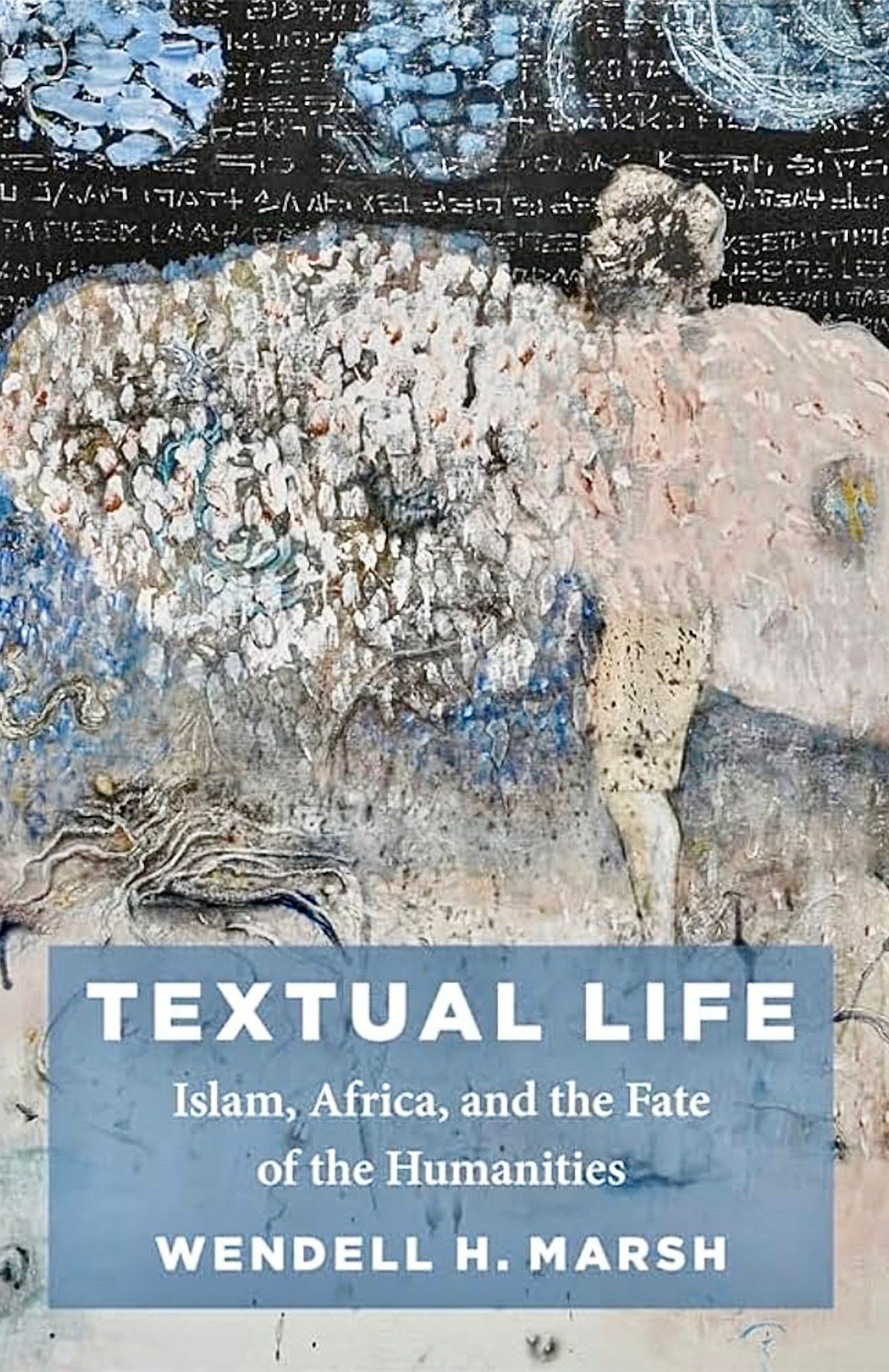𝘊𝘰𝘭𝘰𝘯𝘪𝘢𝘭 𝘴𝘪𝘭𝘦𝘯𝘤𝘦 𝘤𝘭𝘢𝘪𝘮𝘦𝘥 𝘈𝘧𝘳𝘪𝘤𝘢 𝘩𝘢𝘥 𝘯𝘰 𝘩𝘪𝘴𝘵𝘰𝘳𝘺 —𝘚𝘩𝘢𝘺𝘬𝘩 𝘔𝘶𝘴𝘢 𝘒𝘢𝘮𝘢𝘳𝘢 𝘱𝘳𝘰𝘷𝘦𝘥 𝘰𝘵𝘩𝘦𝘳𝘸𝘪𝘴𝘦 𝘸𝘪𝘵𝘩 𝘩𝘪𝘴 𝘱𝘦𝘯.
𝐁𝐎𝐎𝐊 𝐒𝐔𝐌𝐌𝐀𝐑𝐘:
Coming October 2025, 𝗧𝗲𝘅𝘁𝘂𝗮𝗹 𝗟𝗶𝗳𝗲: 𝗜𝘀𝗹𝗮𝗺, 𝗔𝗳𝗿𝗶𝗰𝗮, 𝗮𝗻𝗱 𝘁𝗵𝗲 𝗙𝗮𝘁𝗲 𝗼𝗳 𝘁𝗵𝗲 𝗛𝘂𝗺𝗮𝗻𝗶𝘁𝗶𝗲𝘀 by Wendell H. Marsh transforms how we understand both African intellectual traditions and the humanities themselves.
At its heart is the Senegalese Muslim scholar Shaykh Musa Kamara (1864–1945), who authored History of the Blacks, a monumental work that challenged colonial myths claiming Africans had neither history nor writing. Kamara envisioned his history in Arabic and French for a world audience, but his project was sabotaged by the indifference of the French colonial state.
Marsh treats this episode as a parable: the fate of the humanities under colonialism mirrors the crisis of the humanities today, threatened by technocracy and algorithmic antihumanism. Yet in Kamara’s textual attitude—a worldview formed through reading and writing—Marsh locates a decolonial vision of knowledge production. By retrieving Africa’s Muslim intellectual legacies, Textual Life shows how scholars once dismissed as subjects of empire can guide us toward a future beyond it.
𝐓𝐀𝐁𝐋𝐄 𝐎𝐅 𝐂𝐎𝐍𝐓𝐄𝐍𝐓𝐒:
Overture: Philology as the Love of Study
Introduction: Deaths of Philology
Beginnings: The Text, the World, and the Sufi
A Degree of Prophecy
Islam Noir: Surveillance Ethnography and the Politics of Representation
A Monumental Text in an Orientalist Season
The Pitfalls of National Literature
The Secular-Religious Afterlife of Shaykh Musa Kamara Coda: Long Live Philology! Or, Remembering the Future of the Humanities
Notes
Acknowledgments
Index
𝐏𝐔𝐁𝐋𝐈𝐒𝐇𝐄𝐑 𝐒𝐔𝐌𝐌𝐀𝐑𝐘 & 𝐏𝐔𝐑𝐂𝐇𝐀𝐒𝐄:
• Columbia University Press:
https://cup.columbia.edu/book/textual-life/9780231558556/


